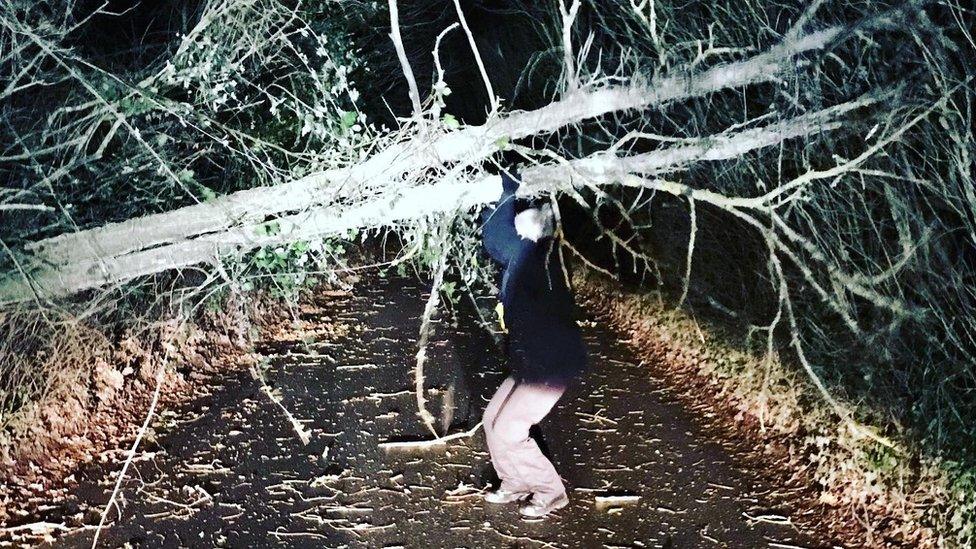Storm Evert: Strong winds and heavy rain cause disruption
- Published
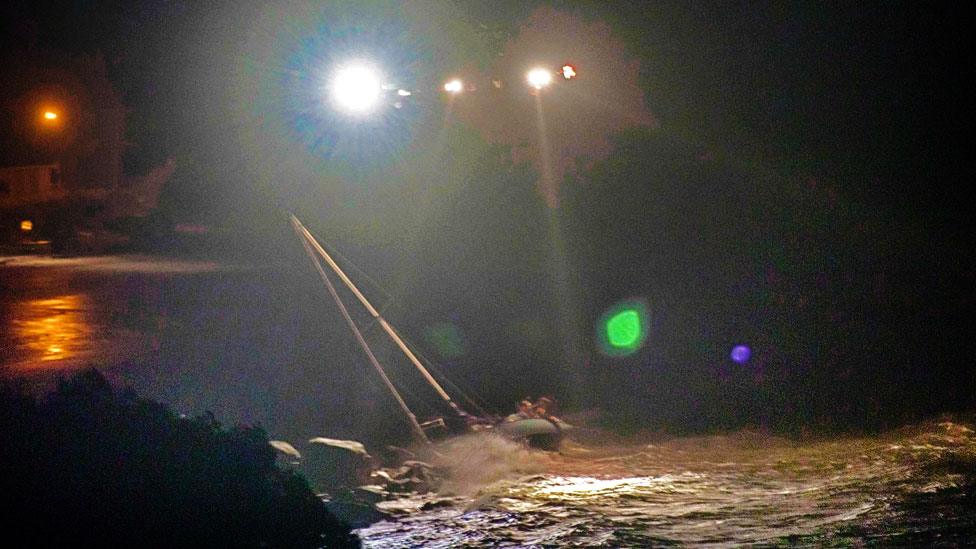
Lifeboats and the Maritime Coastguard Agency helicopter rescued a number of people from yachts
Storm Evert has caused significant disruption in the South West, prompting a number of rescues off the Isles of Scilly.
The Met Office issued a yellow wind warning for the region, including gusts of up to 75mph (121km/h).
Falmouth Coastguard said overnight it responded to more than 20 incidents off the islands, 28 miles (45km) off Cornwall.
It said many involved rescuing people from their yachts.
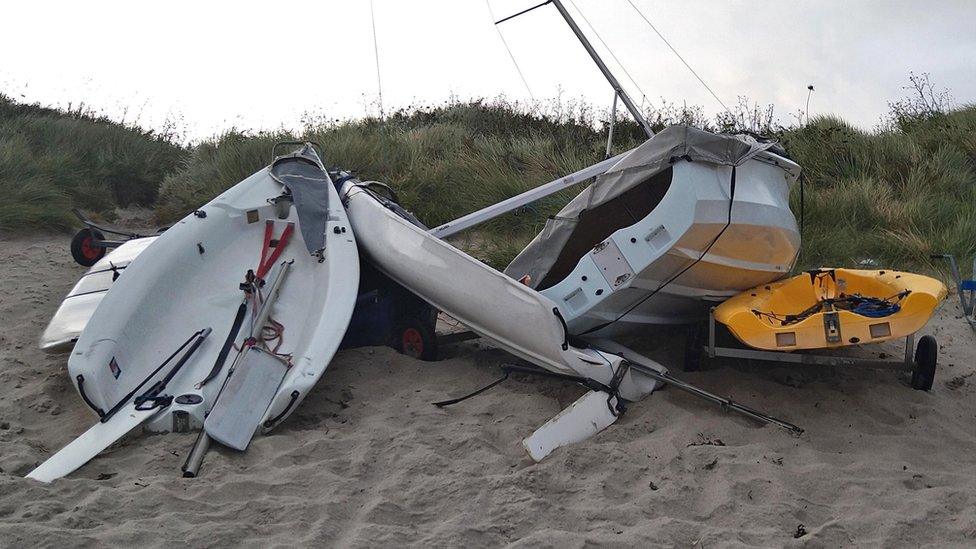
Boats on the Isles of Scilly were hit by strong winds overnight
Falmouth Coastguard, Paddy Cochran, said: "When you're on board your yacht and you're being blown towards rocks, it becomes life-threatening very, very quickly," he said.
The St Mary's and Sennen RNLI lifeboats were in action throughout the night.
Mr Cochran said the crews were "exhausted".
A coastguard rescue helicopter airlifted people from at least four yachts.
There have also been reports of fallen trees blocking some roads in Cornwall on Friday.
Allow X content?
This article contains content provided by X. We ask for your permission before anything is loaded, as they may be using cookies and other technologies. You may want to read X’s cookie policy, external and privacy policy, external before accepting. To view this content choose ‘accept and continue’.
An amber warning for Cornwall had initially been issued by the Met Office for Thursday night.
Some campsites had relocated guests to try to protect them against the elements, while others were prompted to pack up and leave.
Alice Cresswell and her family, who had come to Perranporth from London, were forced to spend the night in the car after their tent was destroyed.
"It's been a stressful night. We've been in the car all night, cold," she told the BBC.
"We had to escape the tent because it collapsed in the early hours of the morning.
"It was really scary - it was shaking a lot. We just weren't prepared for it."
A coastguard rescue helicopter airlifted people from at least four yachts
Another camper, Matthew Szczepkowski, said the gale force winds had made his night "absolutely horrendous".
"The car was moving, everything was blowing about, it was just non-stop," he said.
"I thought this morning it might have died down, but obviously it hasn't, it's even worse."

Analysis by BBC meteorologist David Braine
Storm Evert is now on its way across to Scandinavia, and it will continue to weaken as it moves east so for us the worst is over.
The area of low pressure was named by the United Kingdom Meteorological Office because of its potential to have a high impact on those on holiday - particularly in tents - businesses and infrastructure.
In the end the highest gusts were on the Isles of Scilly at 69mph (111km/h), but many other locations had gusts above 50mph (80km/h).

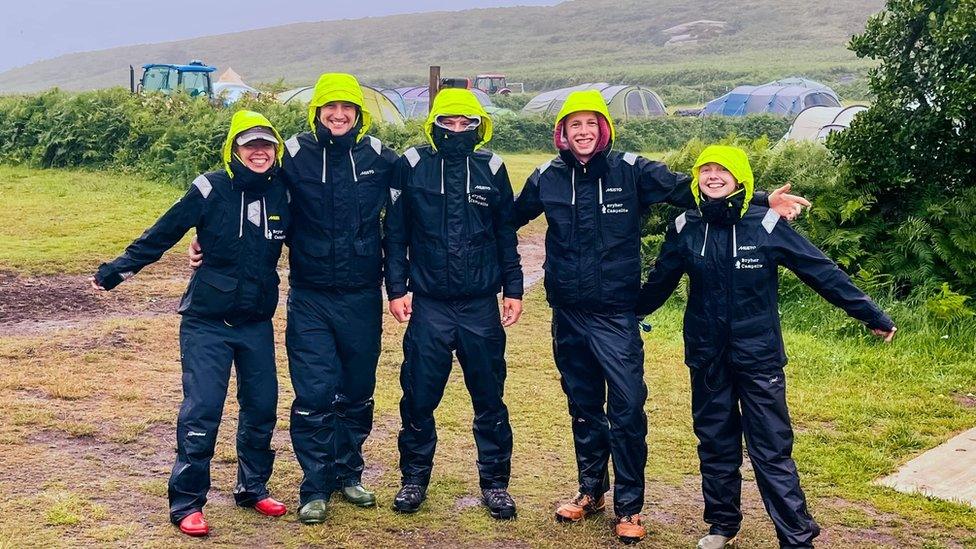
Staff at Bryher Campsite worked through the night to keep guests safe
Bryher Campsite on the Isles of Scilly was forced to move some campers into a community hall overnight.
"We have had the campsite for six years, it's the worst storm we've ever had," said its owner Tom Matthews.
"The strength of the wind and the gusts last night was just something else.
"When it's weather like that and the potential of people in danger we have to do what we have to do."
People were also warned against any early-morning swims.
"It's a risk you don't need to take," said Cornwall Coastguard James Instance.
"If the sea is looking choppy, rough, different to what it normally would, there could well be rip currents which could get you into difficulty."
Allow X content?
This article contains content provided by X. We ask for your permission before anything is loaded, as they may be using cookies and other technologies. You may want to read X’s cookie policy, external and privacy policy, external before accepting. To view this content choose ‘accept and continue’.

Follow BBC News South West on Twitter, external, Facebook, external and Instagram, external. Send your story ideas to spotlight@bbc.co.uk, external.


Do you live in a region affected by Storm Evert? Share your experiences by emailing haveyoursay@bbc.co.uk, external.
Please include a contact number if you are willing to speak to a BBC journalist. You can also get in touch in the following ways:
WhatsApp: +44 7756 165803
Tweet: @BBC_HaveYourSay, external
Please read our terms & conditions and privacy policy
If you are reading this page and can't see the form you will need to visit the mobile version of the BBC website to submit your question or comment or you can email us at HaveYourSay@bbc.co.uk, external. Please include your name, age and location with any submission.
Related topics
- Published29 July 2021
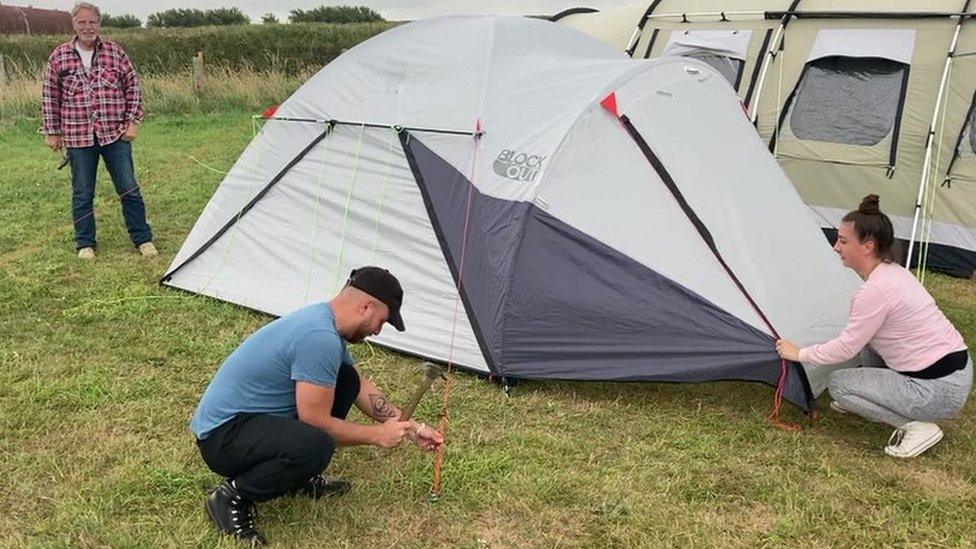
- Published29 July 2021
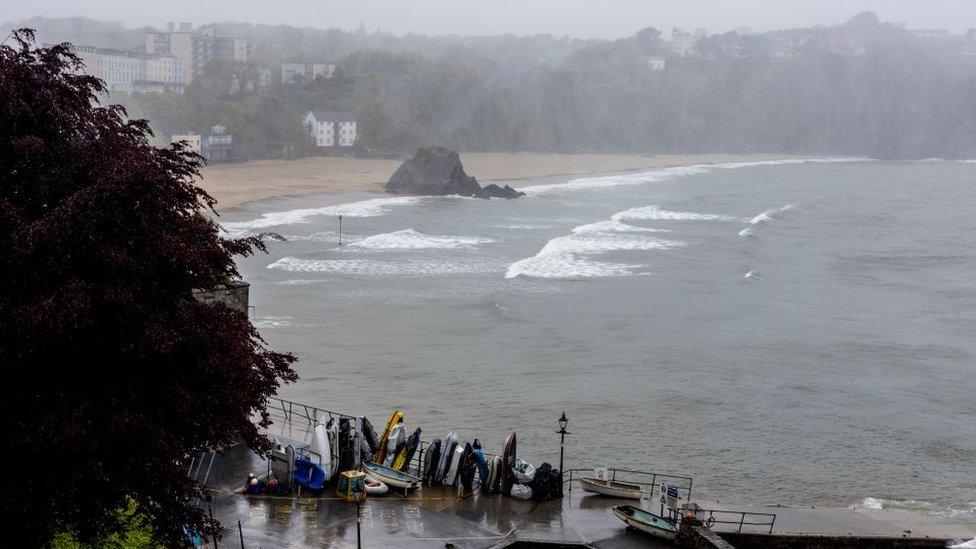
- Published9 December 2019
